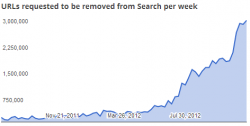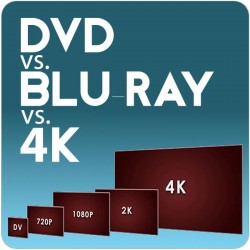Weekly News Roundup (22 September 2013)
Work. GTA V. More work. More GTA V.
That’s been pretty much my week so far. Not enough time with GTA V, and far too much work, unfortunately. And having an annoying cold didn’t help either.
It’s a fantastic game, the first really fun GTA game in a long time (after the bland and self-important GTA IV). I can’t recommend it enough, and if you have any inkling of interest in sandbox games, or driving around a real city, or gunning and running over people for no particular reason, then GTA V is the game for you. It’s mad fun, and here’s a gameplay video for the clueless gamers out there.
Oh yes, a WNR to go though. Here we go.
 We now know, possibly, why Google decided to release a report on their anti-piracy efforts last week. Instead of the report being a fire across the bows of the copyright lobby, as I originally thought, that particular report now seems like a defensive move in anticipation of the MPAA’s own little report this week, which took center aim at Google for its role in “helping” Internet piracy.
We now know, possibly, why Google decided to release a report on their anti-piracy efforts last week. Instead of the report being a fire across the bows of the copyright lobby, as I originally thought, that particular report now seems like a defensive move in anticipation of the MPAA’s own little report this week, which took center aim at Google for its role in “helping” Internet piracy.
Saucy stats in the report include the 74% of those surveyed that use Google or a search engine like it to discover websites that offers pirated content, even when some were not looking for it in the first place. Or that 58% of perfectly innocent search terms resulting in result pages that contain links to infringing content. And the study even dissects Google’s piracy downranking algorithm and finds that piracy sites are not being affected at all, traffic wise.
Of course it goes without saying that the MPAA were the ones that commissioned the report in the first place, befitting their usual M.O. I will refer you to the story I talked about last week, regarding a truly independent study that found a worrying bias in studies referred to or commissioned directly by rights holder groups.

Google’s anti-piracy efforts not enough, says MPAA as Hollywood’s trade lobby points accusing finger at Google over Internet piracy
Google, being the dominant search engine, was always going to have a role in linking to pirated content. Just like they have a big role in linking to legitimate content too. Would Hollywood be better off with or without Internet search engines, there to help them promote their latest shitty movie? That’s one of the many pertinent question the study doesn’t look at.
People who want to find pirated content, will find it, whether Google is there or not. There are forums, Facebook, Twitter. Hell, even the MPAA has done a pretty neat job at pointing to the best piracy places via their DMCA notices and frequent blog posts. Really, there’s nothing in the report that we didn’t know already.
So it’s hard to tell what publicizing facts which are already widely known will do towards reducing piracy. But the report is not really intended for you and me, or pirates, or even Google. It’s for those that sit on Capitol Hill, those that are funded by the MPAA, the ones needing something to be outraged about to justify their coziness to Hollywood’s cashed up lobbyists.
And then you have Netflix. Not only does Netflix helps to reduce piracy, it also uses piracy stats for its own advantage, according to Netflix’s VP of content acquisition Kelly Merryman. Merryman says that piracy stats are being used to judge a show or movie’s popularity in a particular region, and this then help form the decision whether to license that particular piece of content in the region. Merryman, who was being interviewed by the Netherlands based Tweakers website regarding Netflix’s recent launch in the country, noted that the TV show Prison Break was one of the shows whose licensing was determined by the popularity of the show on piracy networks.
It’s certainly an interesting and common sense approach. Piracy has always been a measure of demand, and unmet demand usually. And so it makes perfect sense for Netflix to tap into piracy stats to determine a show’s popularity. With Netflix less eager to make bulk licensing deals with studios, instead choosing to license specific content on a case-by-case basis, these stats could prove invaluable. At the very least, it’s cheaper than conducting market research.
In a separate interview, Netflix CEO Reed Hastings also confirmed that Netflix is having a big effect on piracy, stating that Canadian piracy related BitTorrent traffic dropped by 50% following the introduction of Netflix into the country. Hastings believes that the ease of use of Netflix is why it is beating piracy, even though pirated content comes at zero cost.
People have always been willing to pay for content, even if it is already available on the Internet for free. How much they’re willing to pay largely depends on the overall user experience, and people’s notions of value. There is no doubt that Netflix, with its $7.99 per month price point, offers both value and a better user experience thanks to the large number of supported devices. And this, not via legislation or DRM, or studies, is how you beat piracy.

And the next battleground for Netflix may be in the 4K arena. The company’s CEO is already hinting at the technical aspect of Netflix’s 4K offering. Speaking in an interview conducted in Netherlands, Netflix CEO Reed Hastings said that Netflix’s 4K offering will “only” require a 15 Mbps connection per stream.

4K will use more bandwidth than DVD or Blu-ray quality videos, but Netflix thinks 15 Mbps should be enough
Netflix currently uses eyeIOs compression technology to delivery its up-to 1080p videos. Sony’s recently launched Internet based 4K download service, incidentally, also uses the same firm’s platform. 4K movies on Sony’s service are 40 to 60 GB large at the moment, which is actually about 45 to 70 Mbps (but to be fair, Sony’s service is more download than streaming). eyeIO is also believed to be investigating adapting the HEVC codec into their platform in the future, offering possibly even better compression and/or quality.
Of course, 15 Mpbs would seem like the minimum requirement, and for only one stream. Given overhead, multiple streams, and the fact that people in the same household might use the Internet for other things while someone streams 4K content, a steady 30-50 Mbps connection would be ideal. That’s not really achievable on a mass scale right now, but Hastings says that the 4K take-up would be slow enough to allow ISPs enough time to ramp up their infrastructure.
I don’t know though. I think the people who are likely to be interested in 4K, the cinephiles, won’t want compromises on quality. Therefore, they’d want the highest possible quality 4K streams, and 15 Mbps (and Netflix in general) isn’t going to do it. Fiber connections or discs, I think, is where the majority of 4K content will be delivered across.
That’s it for the week. Back to GTA V for me, at least for a while until the work deadlines become a bit more serious. See you next week.
